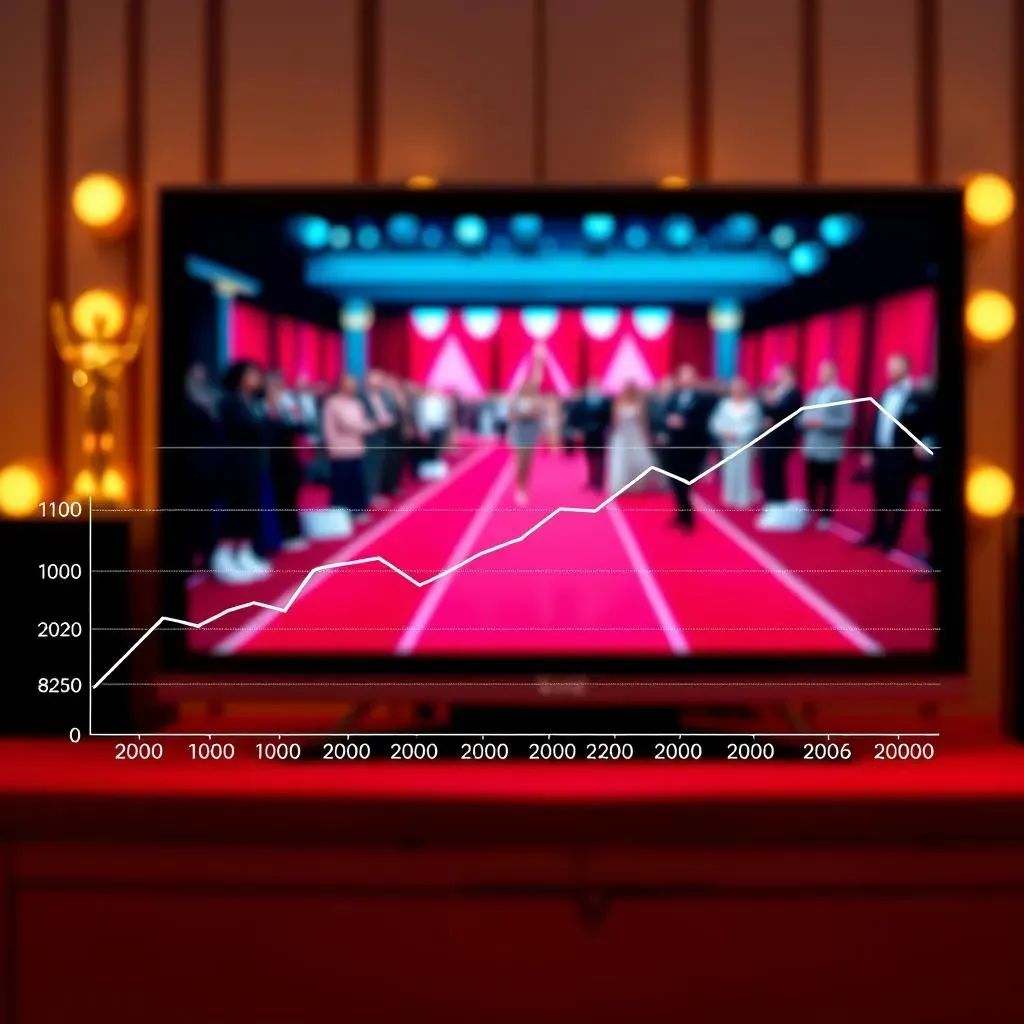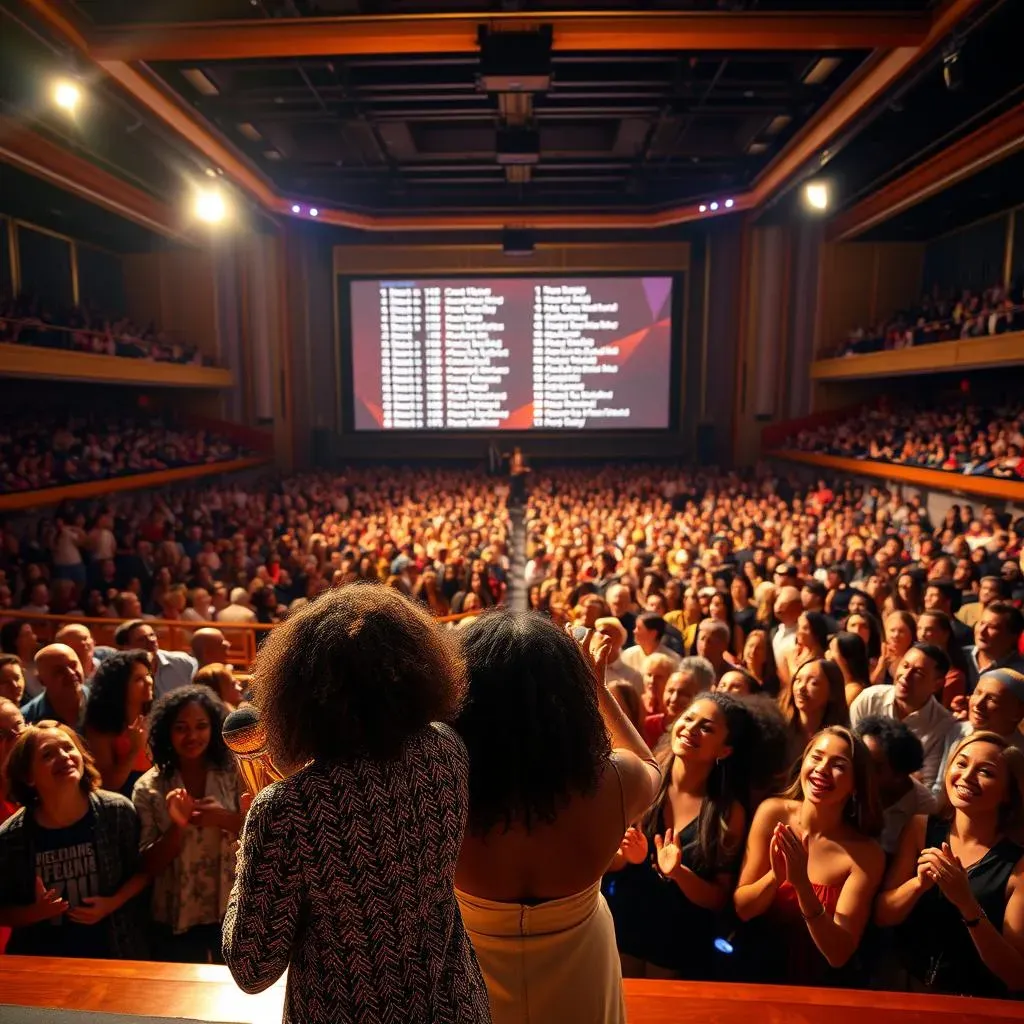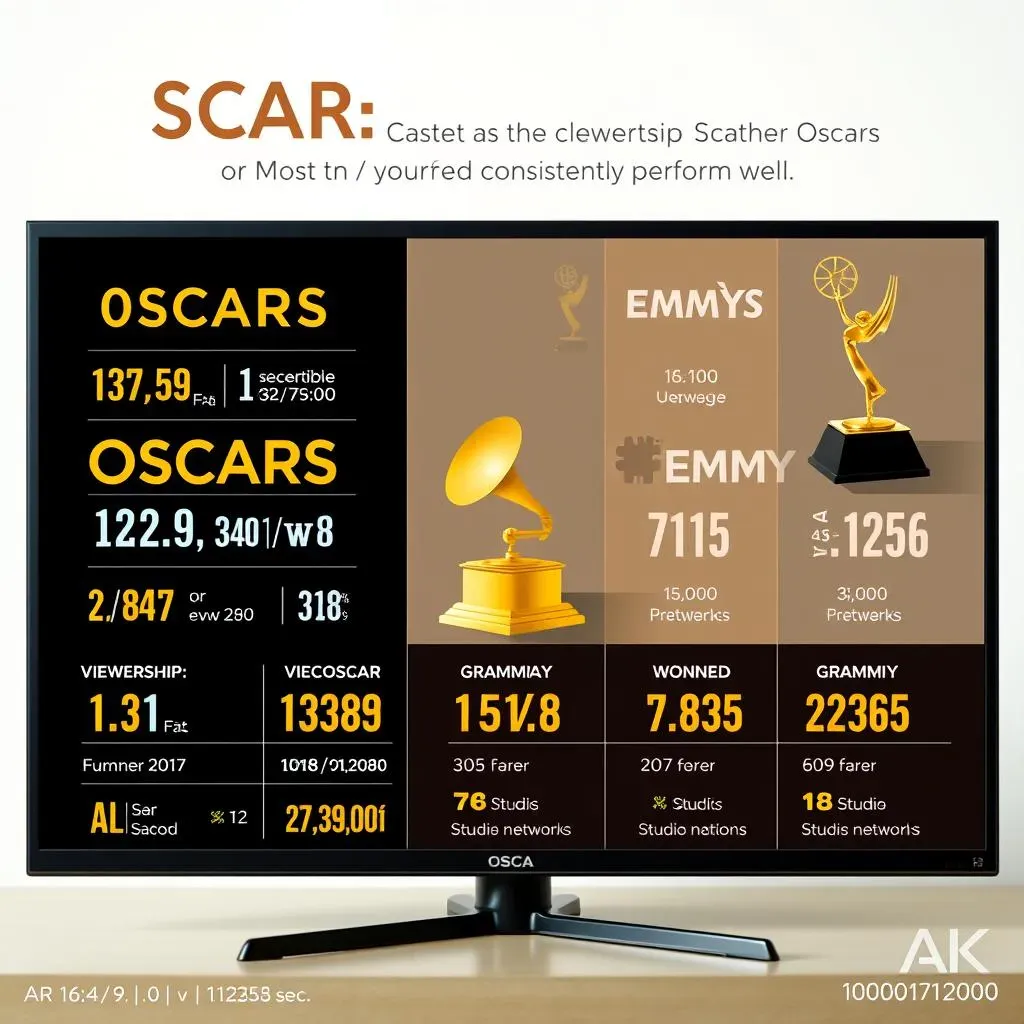Table of Contents
Have you ever wondered which award shows really pull in the crowds? Or who the real record-breakers are when it comes to nominations and wins? I've always been fascinated by the glitz and glamour of celebrity award shows, but what really gets my attention are the numbers behind the scenes. It's not just about who wore what, it's about the stories the statistics tell. This article is all about diving deep into the world of "celebrity award statistics comparisons". We're going to look at the viewership numbers, see how diversity is (or isn't) represented, and then pit the biggest three—the Oscars, Grammys, and Emmys—against each other in a battle of stats. Think of it like a celebrity showdown, but with spreadsheets instead of speeches. So, grab your popcorn and let's explore the real story behind the red carpets, trophies, and acceptance speeches, all through the lens of cold, hard numbers.
Award Show Viewership: How Many Tune In?

Award Show Viewership: How Many Tune In?
The Big Picture: Who's Watching?
Let's face it, award shows are a big deal. Millions of people worldwide gather around their TVs or devices to see who'll take home the coveted golden statues or gramophones. It's like the Super Bowl for the entertainment industry! But the real question is, are the numbers going up or down? It's not as simple as you might think. Some years, the viewership is through the roof, and other years, it's like everyone decided to binge-watch something else. We've seen some pretty dramatic shifts over the past few decades. Think about it: back in the day, everyone was glued to their sets, but now we've got streaming and so many options, it's a totally different ball game.
The 90s, for example, were the heyday of big TV audiences for award shows. We're talking numbers that would make today's networks drool. But then, things started to change. The internet happened, and suddenly everyone could watch what they wanted, when they wanted. So, what does this mean for our beloved award ceremonies? Well, it means they’ve had to adapt. Some are doing it better than others, and it’s pretty fascinating to see which ones are still pulling in big numbers and which ones are struggling. It’s not just about the awards; it’s about the whole experience, the red carpet, the performances, and everything in between. It all adds up to a pretty interesting story when you look at the stats.
Award Show | Peak Viewership (Approx.) | Recent Viewership (Approx.) |
|---|---|---|
Oscars | 43 million (2000s) | 19.5 million (2024) |
Grammys | 28 million (2012) | 16.9 million (2024) |
Emmys | 21 million (2000) | 6.8 million (2023) |
The Decline and Rise: A Rollercoaster of Numbers
Now, it's not all doom and gloom, even if the numbers have taken a dip. It's more like a rollercoaster ride than a straight line. Some award shows are actually seeing a bit of a comeback, especially with changes to their formats and the inclusion of more diverse talent. It's like they're finally realizing that what people want to see is not just the same old song and dance. The Golden Globes, for instance, had a bit of a viewership bump in 2024, which shows that things can change if you shake things up a bit. I think it's a testament that even in a world of endless entertainment options, people still care about recognizing great talent.
But here's the thing: the numbers aren't just about how popular an award show is, they also reflect what's happening in the industry. When viewership dips, it can mean that people aren't connecting with the content or that the industry isn't reflecting the audience. It’s a real wake-up call. It’s almost like the award shows are a barometer for the entertainment world, telling us what's working and what's not. So, while we might be talking about numbers, what we're really talking about is the state of movies, music, and TV, and the ways we all engage with them. It is, in my opinion, a pretty important thing to keep an eye on.
Diversity in Celebrity Award Nominations and Wins

Diversity in Celebrity Award Nominations and Wins
The Glaring Imbalance: Who Gets the Spotlight?
Okay, so we’ve talked about how many people watch these shows, but let's get real about who's actually being nominated and winning. The entertainment industry loves to talk about how progressive it is, but the stats often tell a different story. For years, we've seen a pretty consistent pattern: white, male actors and directors dominating the major categories. It's like a broken record, and it's starting to sound pretty stale. I mean, where are the women? Where are the people of color? It's not like they aren't making amazing movies and music, it's more like the people doing the nominating aren't looking hard enough, or maybe they're just not looking in the right places.
It's not just about winning, though. Even the nominations themselves can be a huge boost for an artist’s career, and if certain groups aren't even getting a seat at the table, it's a problem. It's not like there's a shortage of talent out there, it's more about the system itself. It often feels like they’re just recycling the same names year after year, and that's not only boring, but it's also unfair. The whole point of these awards should be to celebrate the best in the business, not just the same old faces. I think that's why so many people are starting to tune out, because they don't see themselves reflected in the awards.
Award Category | Percentage of Female Winners (Approx.) | Percentage of Minority Winners (Approx.) |
|---|---|---|
Best Director (Oscars) | 5% | 10% |
Best Album (Grammys) | 20% | 30% |
Lead Actor/Actress (Emmys) | 35% | 25% |
Small Steps, Big Impact: Signs of Change?
Now, it's not all bad news. We are starting to see some changes, though they’re happening at a glacial pace. Some award shows are making a conscious effort to nominate more women and people of color. The Golden Globes, for example, have made some moves to increase the number of female nominees in major categories, which is a start. But it’s important to not get too excited, because it’s still not enough. It's like they're finally realizing that the world is more diverse than the people they’ve been nominating, and that's a good thing.
But, it's not just about changing the numbers. It's also about changing the culture, the mindset that has made these inequalities possible in the first place. It's about making sure that everyone has a fair shot. And that's going to take more than just a few tweaks here and there, it will take a fundamental shift in how the entertainment industry operates. It also means that we as the audience need to make our voices heard. If we're not seeing ourselves represented on screen, then we need to demand that change. It’s not just about entertainment; it's about creating a more fair and inclusive world.
The Future of Representation: What's Next?
The progress we've seen is, frankly, not enough. We need to keep pushing for more, and it's not just about getting more people of color and women nominated, it's also about recognizing talent from all backgrounds, all cultures, and all kinds of stories. The world is a diverse place, and our entertainment should reflect that. What I'm really hoping for is a future where the awards are a true representation of the best talent out there, regardless of who they are or where they come from. I think that’s the only way we can keep these awards relevant and meaningful.
It's not going to happen overnight, but we have to keep talking about it, keep pushing for change, and keep holding the industry accountable. It's not just about who gets to hold the trophy, it’s about who gets to tell their story, and who gets to inspire the next generation of artists. It might seem like a small thing, but representation really does matter. It's how we shape our culture and how we see ourselves in the world. And in my opinion, it's about time the award shows caught up to that reality.
Comparing the Big Three: Oscars, Grammys, and Emmys Celebrity Statistics

Comparing the Big Three: Oscars, Grammys, and Emmys Celebrity Statistics
The Clash of the Titans: A Statistical Showdown
Alright, so we've talked about viewership and diversity, but now it’s time for the main event: comparing the big three – the Oscars, the Grammys, and the Emmys. These are the heavyweights of the award show world, each with its own unique history, traditions, and, of course, statistics. It's like a three-way battle for entertainment supremacy, and I'm here to break down the numbers. Each show has its own quirks and strengths, and it's pretty wild to see how they stack up against each other. The Oscars, for movies, are all about prestige and cinematic achievement. The Grammys, for music, are a celebration of sound and innovation. And the Emmys, for TV, are like a nod to the stories that keep us glued to our couches. So, how do these giants compare in the numbers game?
I think it's fascinating how different these awards are, yet they all hold such a significant place in popular culture. The Oscars often feel like the most formal, with all the fancy gowns and serious speeches. The Grammys are usually the most energetic, with live performances and collaborations. And the Emmys have that "binge-worthy" vibe, showcasing the best of TV series. But beyond the glitz and glamour, it's the stats that reveal the true story of each award show. So, let's get into it and see who comes out on top, at least in terms of the numbers.
Statistic | Oscars | Grammys | Emmys |
|---|---|---|---|
Average Viewership (Recent) | 19.5 million | 16.9 million | 6.8 million |
Most Nominations (Individual) | Walt Disney (59) | Georg Solti (74) | Julia Louis-Dreyfus (27) |
Most Wins (Individual) | Walt Disney (26) | Georg Solti (31) | Julia Louis-Dreyfus (11) |
The Reigning Champions: Who Dominates?
When we look at the individuals who have dominated these shows, some names keep coming up. At the Oscars, it's hard to ignore the legacy of Walt Disney, who has a record number of nominations and wins. He's like the king of the Oscars. For the Grammys, the classical conductor Georg Solti holds the crown for most nominations and wins. And over at the Emmys, Julia Louis-Dreyfus is a force to be reckoned with, with a ton of nominations and wins for her roles in comedy series. These aren't just random names; they're the people who've consistently brought their A-game, year after year.
It’s also interesting to see which studios and networks consistently perform well. For example, Universal Pictures tends to be a powerhouse at the Oscars, while record labels like Universal Music Group often dominate the Grammys. And when it comes to the Emmys, networks like HBO and Netflix are always in the mix. These aren't just numbers; they represent the hard work and creativity of thousands of people. It’s like a real-life competition, and it's fascinating to see who rises to the top. In my opinion, these statistics give a cool perspective on the entertainment world as a whole.